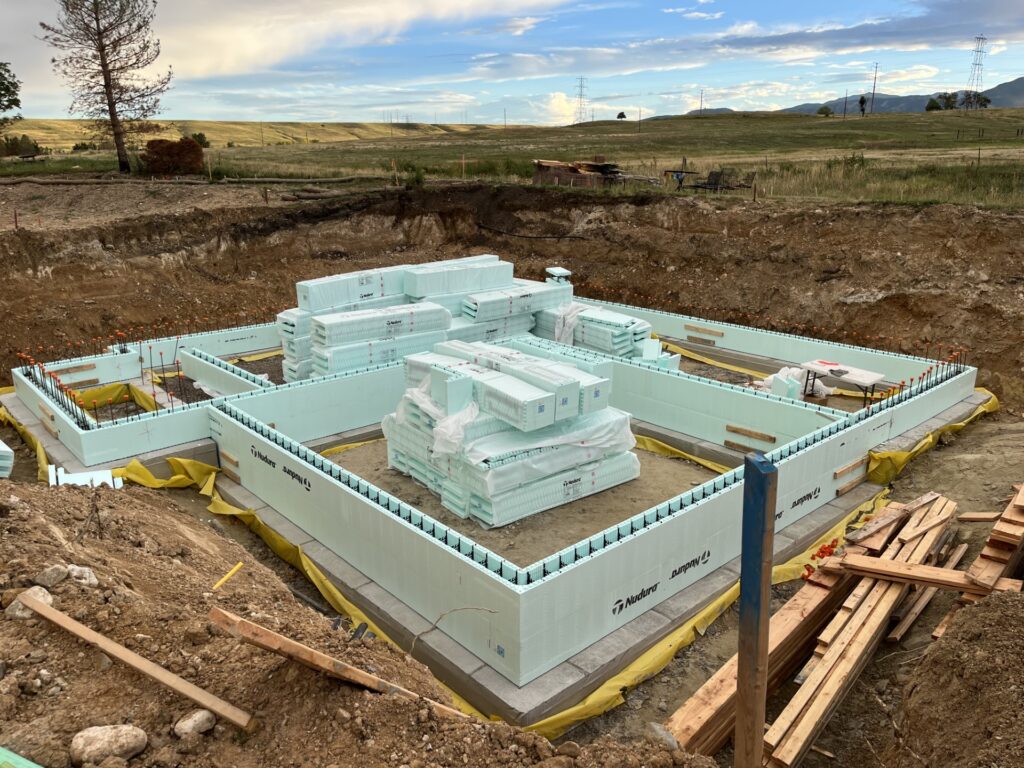In today’s ever-evolving housing market, homebuyers and investors are constantly searching for ways to get the most value out of their real estate investments. As the demand for sustainable, durable, and energy-efficient homes grows, concrete homes are emerging as a game-changer in the real estate market. While traditional wood-framed homes have been the norm for decades, concrete homes are now attracting significant attention for their many benefits, and for good reason. Not only do these homes offer unparalleled durability and energy efficiency, but they are also helping to increase the overall value of real estate.
Durability and Longevity as a Selling Point
One of the primary reasons concrete homes are increasing in value is their exceptional durability. Concrete is a material that is naturally resistant to the elements, pests, and the wear and tear that can affect wood and other materials. Unlike wood-framed homes, which can suffer from issues like termite damage, rot, and mold, concrete homes are far more resilient. In fact, concrete can withstand extreme weather conditions such as heavy rains, high winds, and even earthquakes, making it an ideal choice for areas that experience natural disasters. This level of durability not only helps protect homeowners and their investment but also increases the property’s resale value. Buyers are willing to pay a premium for a home that offers more protection and longevity.
Moreover, the long lifespan of concrete homes means that they require fewer repairs and maintenance over time. A concrete home can last for decades, with minimal upkeep needed, while a wood-framed home may need regular repairs, such as roof replacement, re-painting, and treating for pests. This lower maintenance requirement is attractive to homebuyers, making concrete homes a more desirable option. Homes that are built to last longer often have a higher resale value, and as more buyers recognize the benefits of concrete, they are increasingly willing to invest in these durable properties.
Energy Efficiency and Lower Utility Costs
Another compelling reason concrete homes are adding value to real estate is their energy efficiency. Concrete has exceptional thermal mass, meaning it is capable of absorbing and storing heat. In the colder months, concrete homes retain heat better than wood-framed homes, which reduces the need for constant heating. In the summer, concrete homes remain cooler by absorbing the heat and releasing it slowly over time, meaning air conditioning systems don’t have to work as hard. This inherent ability to regulate temperature naturally results in lower energy bills, which is a huge selling point for potential buyers.
With energy costs continuing to rise, energy-efficient homes are becoming more desirable, and buyers are willing to pay a premium for homes that offer long-term savings. Concrete homes are well-known for their ability to reduce heating and cooling expenses, making them an attractive investment for homebuyers looking to save on utility costs. Furthermore, the growing awareness of climate change and the push toward sustainable living have made energy-efficient homes a priority for many. Buyers increasingly want homes that align with their values, and concrete homes provide the perfect balance of energy savings and eco-friendly features, which can ultimately boost a home’s market value.
Resistance to Natural Disasters
In many parts of the world, natural disasters such as hurricanes, wildfires, and earthquakes are becoming more frequent and severe. As a result, homeowners are seeking properties that can offer better protection during these events. Concrete homes, with their superior structural integrity, provide just that. Concrete is fire-resistant, which is particularly beneficial in areas prone to wildfires. It is also resistant to flooding, termites, mold, and mildew, all of which can cause serious damage to homes made from wood and other materials. This increased resilience makes concrete homes a more secure option for homeowners, and as safety becomes a higher priority, the value of these homes rises accordingly.
In areas with high risks of natural disasters, a concrete home can be a lifesaver. Not only does it offer protection during a disaster, but it can also be a significant selling point when the time comes to sell. Buyers in disaster-prone areas are often willing to pay more for a home that offers better protection and peace of mind. As more buyers prioritize safety and disaster preparedness, homes built with concrete are becoming highly sought after, which directly contributes to their higher market value.
Low Maintenance and Reduced Repair Costs
One of the key benefits of concrete homes is that they are incredibly low-maintenance. Wood-framed homes require regular upkeep, such as painting, sealing, and treating for termites, to maintain their appearance and structural integrity. Concrete homes, on the other hand, do not have the same issues with rot, mold, or pest infestation. As a result, homeowners save both time and money on repairs and maintenance.
In fact, concrete homes often have fewer repair needs than traditional wood homes. With their resistance to weathering, pests, and moisture, they require less frequent attention, and any necessary repairs tend to be far less costly. This lower maintenance burden is a major selling point for potential buyers, especially those looking for a home that offers ease of ownership and long-term savings. Homes that require less maintenance are not only more appealing to buyers, but they also tend to retain their value better over time. When buyers see the potential for lower ongoing costs, they’re more likely to pay a higher price for a concrete home.
Sustainable Features and Eco-Friendly Appeal
As environmental concerns become more prominent, buyers are increasingly looking for homes that are sustainable and eco-friendly. Concrete homes meet these demands by offering a variety of green features. For instance, concrete homes are naturally energy-efficient, reducing the need for fossil fuels and lowering carbon emissions. Many concrete homes are also built using recycled materials such as fly ash, which helps reduce the environmental impact of construction.
Moreover, concrete’s long lifespan means that fewer resources are needed for repairs or replacements over time. This contributes to the overall sustainability of the home, as fewer materials are consumed and less waste is generated. As more buyers become environmentally conscious, homes with sustainable features are in high demand, and concrete homes are an ideal option. Homes built with eco-friendly materials and energy-efficient designs are more attractive to a growing number of buyers who value sustainability, which increases the property’s value.
Innovative Design
In addition to their practical benefits, concrete homes also offer a level of design flexibility and customization that can further increase their value. Concrete is a versatile material that allows for unique and innovative architectural designs. Unlike wood, which has limitations in terms of shape and structure, concrete can be molded into a wide variety of shapes and styles. Whether you’re looking for a sleek, modern design or a more traditional aesthetic, concrete can accommodate your vision.
Concrete homes can also be designed with features that maximize natural light, such as large windows and open spaces, which make the home feel larger and more inviting. The ability to create custom designs that meet the specific needs and preferences of homeowners adds a level of value to concrete homes that is often not found in traditional wood-framed homes. Buyers are more likely to pay a premium for a home that is unique, well-designed, and tailored to their lifestyle.
Increased Demand
As the benefits of concrete homes become more widely recognized, demand for these properties is on the rise. In many regions, especially those prone to extreme weather, concrete homes are becoming more common. This growing demand is driving up the value of concrete homes, particularly in areas where natural disasters are frequent. In markets where concrete homes are still relatively rare, they can stand out as a premium option, further enhancing their value.
The rise in demand for concrete homes is also influencing real estate development trends. Builders and developers are increasingly incorporating concrete into their projects, recognizing the long-term value it offers both to homeowners and investors. As more concrete homes are built, the market for these homes expands, creating a positive feedback loop where increasing supply helps meet growing demand.
Valuable Asset
Concrete homes are increasingly becoming a valuable asset in the real estate market due to their durability, energy efficiency, low maintenance, and resistance to natural disasters. With their long lifespan and eco-friendly features, these homes offer homeowners a more sustainable, cost-effective, and resilient living option. As the demand for concrete homes continues to rise, their value in the real estate market is only expected to increase. Whether you’re a homebuyer or an investor, concrete homes present an attractive opportunity to capitalize on the many benefits they offer.
At Batten Builders, we specialize in designing and building high-quality concrete homes that meet the needs of today’s homeowners. If you’re interested in learning more about how a concrete home can increase the value of your real estate investment, contact us today to discuss how we can help you build the home of your dreams.





